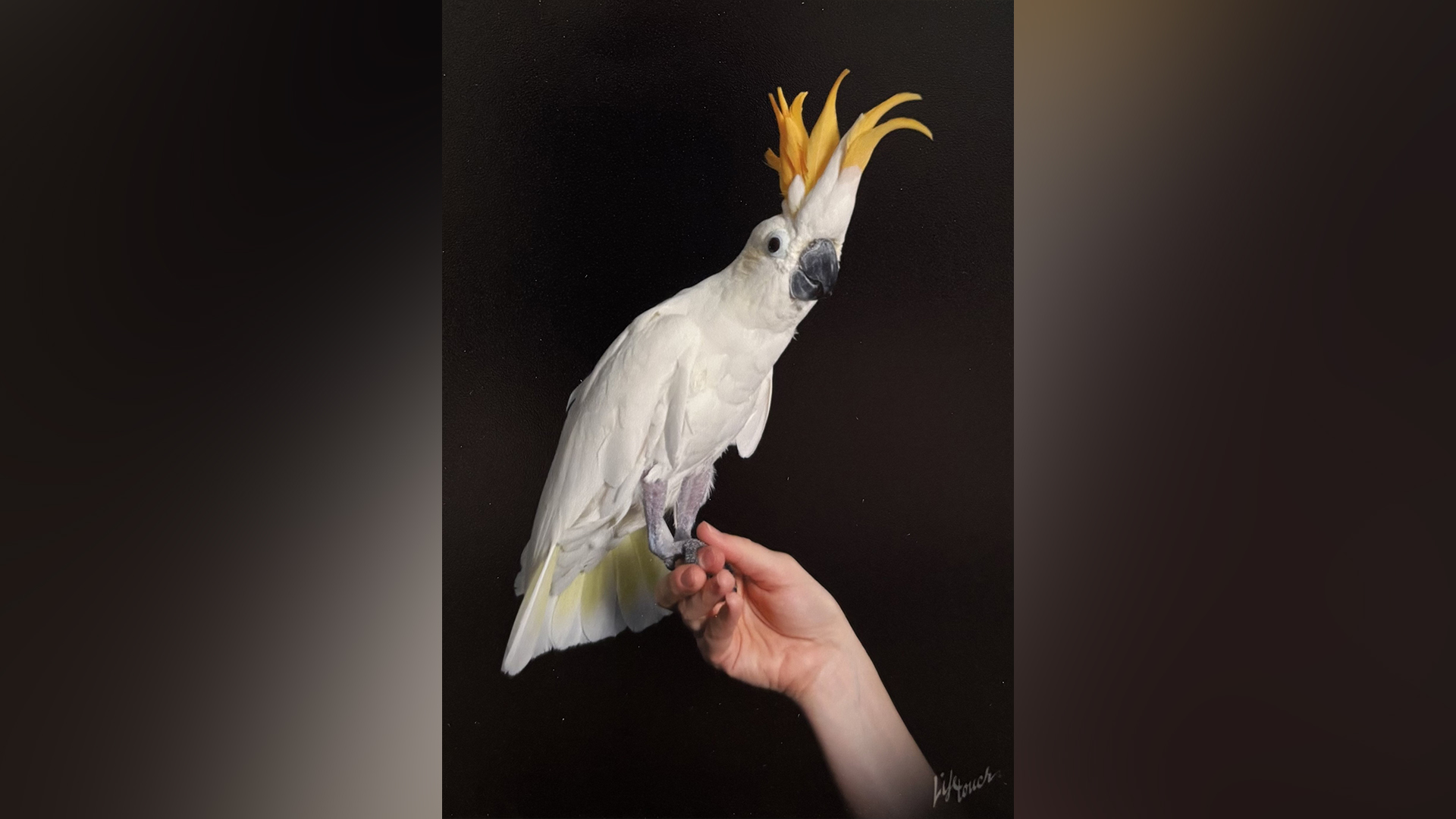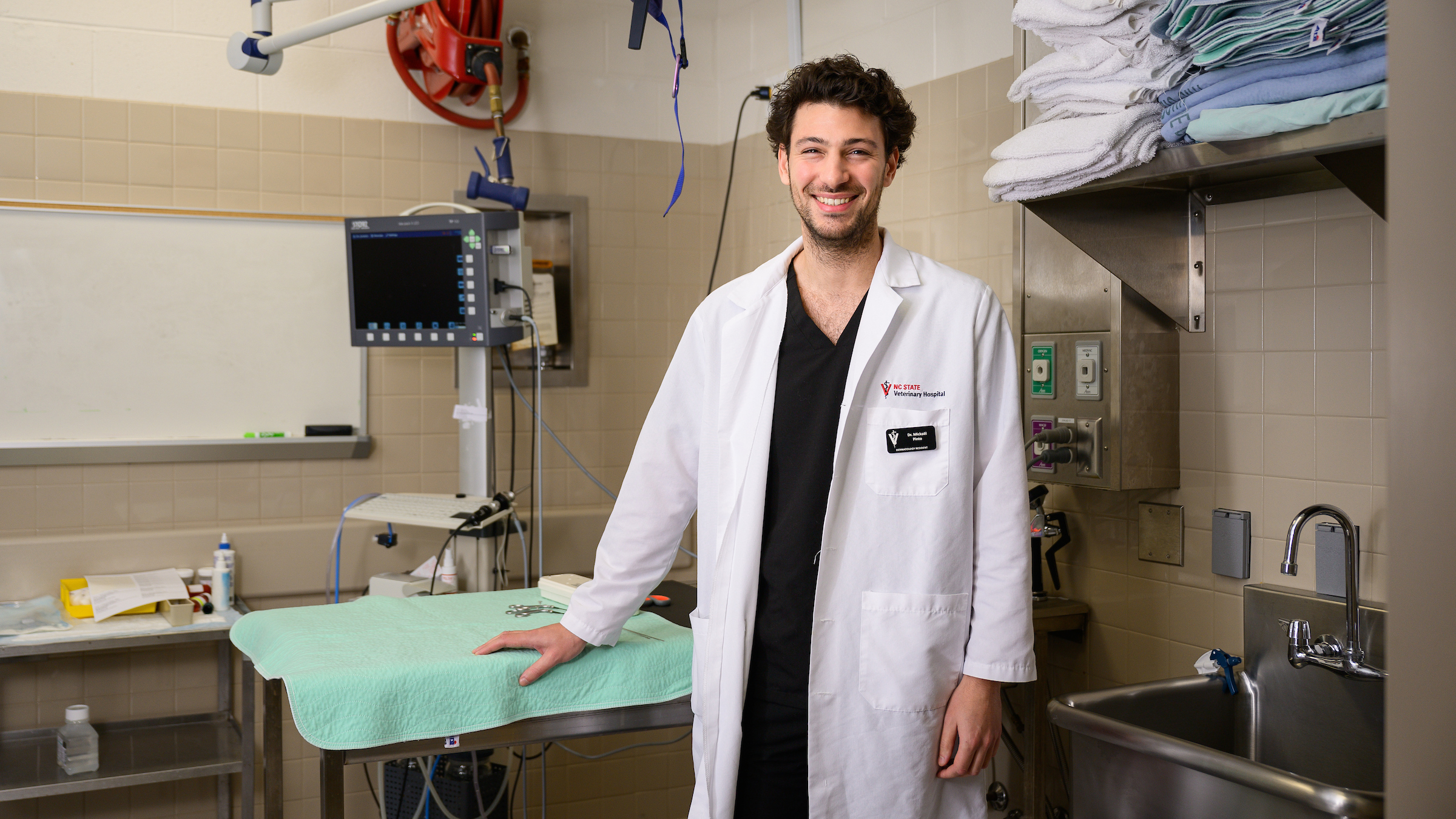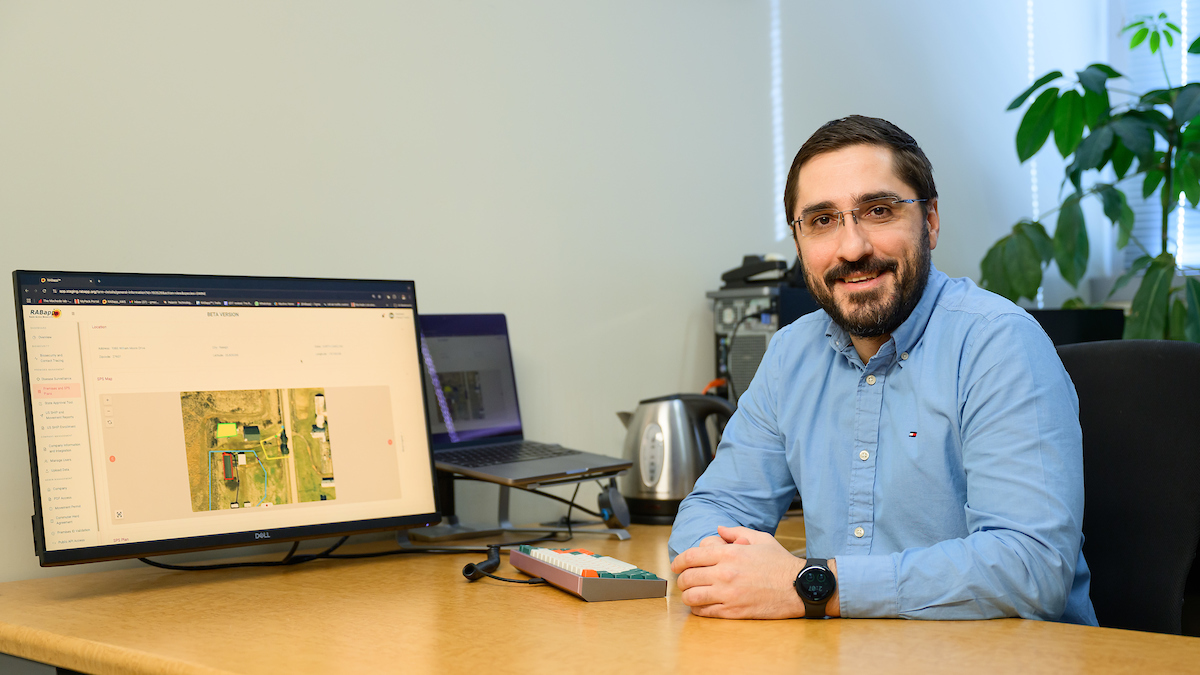Undergraduate Research Program Gives Early Vet School Experience

With a long-held goal of becoming a veterinarian, Kelsie Dougherty devoted as much of her time as possible as an NC State undergraduate to preparing for her dream career.
She joined the zoology club her freshman year, then the herpetology club and the companion animal club. She spent some time working in a poultry lab. During her sophomore year, Dougherty took a university-sponsored trip to India, where saw bears and tigers and fed watermelons to elephants.
But one of the most impactful moments for Dougherty happened close to home.
From the summer after junior year through her senior year, Dougherty participated in the NC State College of Veterinary Medicine’s undergraduate research program. She and fellow undergraduate Greg Bacola were placed with Laurianne Van Landeghem, an assistant professor in the Department of Molecular Biomedical Sciences.
Dougherty and Bacola were given their very own project, working together to explore the role enteric glial cells of the nervous system have in chemoresistance of colorectal cancer.
“You develop your surface skills, like teamwork and thinking on your feet,” said Dougherty. “But you also get more applicable skills, like understanding how the gut works or how diseases affect the functionality of your myenteric plexus.
“All of that is topical when it comes to diagnosing the animal on your surgery table.”
For Bacola, who expressed an interest in cancer research when applying for the program, the research was also personal.
“My mom was diagnosed with breast cancer when I was a child, and I have always admired the people who assisted her during her treatment,” he said.
Previous undecided about his post-graduate plans, the research work prompted Bacola to apply for a position in the CVM’s Comparative Biomedical Sciences Ph.D. program.
And though primarily interested in zoo medicine, particularly wildlife rehabilitation, Dougherty’s veterinary focus was sharpened during her time in the program. She’s now in her second year at the CVM. “It definitely convinced me to pursue a career in research,” said Dougherty.
The CVM’s undergraduate research program is an immersive introduction to the CVM and to the wide world of veterinary medicine. CVM faculty members have informally taken in interested undergraduates for decades, but the Undergraduate Research Program, launched in 2013, provides a formal outlet for the experience.
Undergraduates now apply online, and the few requirements include being at least a sophomore and having a minimum 3.3 GPA. Applicants are encouraged to outline academic and career goals and then are matched with a research experience that aligns with their interests. About 40 students a semester take part in the program.
“I joined the program because Kelsie and Greg are clearly outstanding students,” said Van Landeghem, who was two new undergraduates currently working in her lab. “Today, I am convinced that this program and, more specifically, undergraduate students will be invaluable for my lab and my research.”
Many in the CVM’s undergraduate program are aspiring veterinarians, but others are interested in different facets of medical research, including immunology and infectious diseases, benefiting humans and animals.
“It’s incredibly varied,” said Kathryn Meurs, CVM associate dean for research and graduate studies. “Some want to work in third-world countries to find solutions to global problems. Some want to go to medical school to be a neurosurgeon or want to be a wildlife veterinarian. All get the opportunity to have an impactful experience.”
Distinct interests translate into a range of experiences. Dougherty noted her in program application that she was interested in neurobiology and the gastrointestinal system. Other undergraduates learn how to extract DNA or delve deep into global health issues. One was wrangling calves and talking blood samples on her first day. Meurs said program participants get a clear view of the veterinary profession’s breadth.
“They come here and are surprised by all that we offer,” said Meurs.
Ronald Baynes, CVM professor of pharmacology, has worked with undergraduates in his lab for more than 15 years. He became involved with the program because undergraduates interested in veterinary medicine were often considering biomedical research careers and they wanted to see if a research environment would be the right fit.
Students who work with Baynes start from the ground up, learning how to first develop a research question and then create a research project proposal, he said. The undergraduates under his watch have worked in a variety of pharmacology projects involving species such as cattle, pigs and goats.
“Undergraduate students will spend most of their four years cramming facts and then being tested on what they retain,” said Baynes. “Undergraduate research is an opportunity for students to ask questions about those learned facts and attempt to address the problem in a formal environment.”
The research program is also an opportunity for CVM faculty. Meurs said many come to campus looking to have mentorship experiences with undergraduates, since they had similar experiences during their own undergraduate careers.
Others, like Van Landeghem, hope undergraduates get a real feel for what research is all about.
“I try as much as possible to give my undergraduate students as much independence so that they feel in charge of their project, that they can truly experience research,” said Van Landeghem. “They are key members of the lab.”
For more information on the NC State College of Veterinary Medicine’s undergraduate research program, go here.
~Jordan Bartel/NC State Veterinary Medicine


